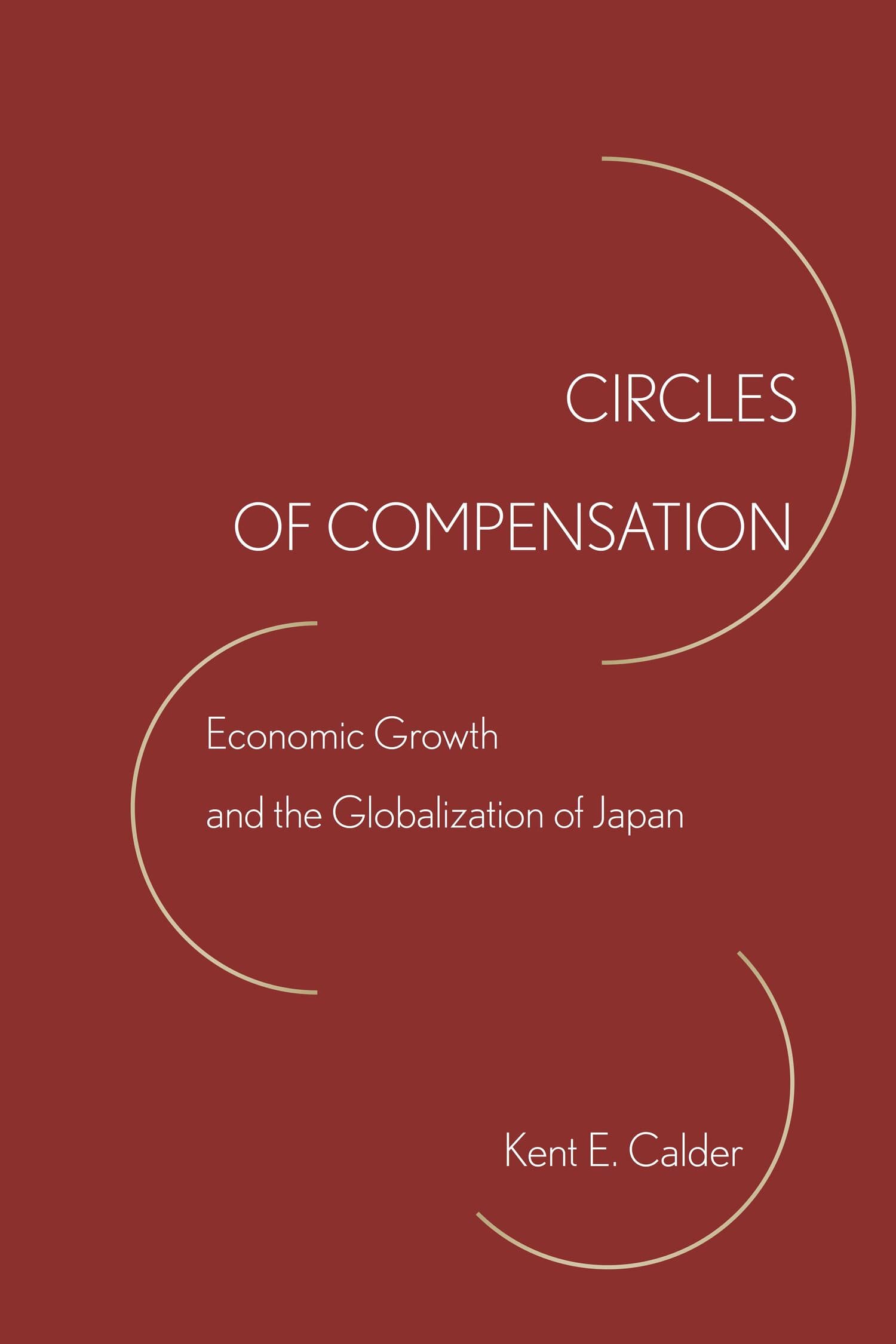Circles of Compensation
Award Winner
2018: Choice Award for Outstanding Academic Title
Winner of the 2018 Choice Award for Outstanding Academic Title, sponsored by the American Library Association.

Japan grew explosively and consistently for more than a century, from the Meiji Restoration until the collapse of the economic bubble in the early 1990s. Since then, it has been unable to restart its economic engine and respond to globalization. How could the same political–economic system produce such strongly contrasting outcomes?
This book identifies the crucial variables as classic Japanese forms of socio-political organization: the "circles of compensation." These cooperative groupings of economic, political, and bureaucratic interests dictate corporate and individual responses to such critical issues as investment and innovation; at the micro level, they explain why individuals can be decidedly cautious on their own, yet prone to risk-taking as a collective. Kent E. Calder examines how these circles operate in seven concrete areas, from food supply to consumer electronics, and deals in special detail with the influence of Japan's changing financial system. The result is a comprehensive overview of Japan's circles of compensation as they stand today, and a road map for broadening them in the future.
"Kent Calder's Crisis and Compensation is one of the classic works on Japanese politics—and with Circles of Compensation, he's written another seminal book on Japanese political economy. In reading this new book, one learns everything one needs to know about Japan's economic problems. An absolute tour de force."—Margarita Estévez-Abe, Syracuse University
"Calder is a scholar and intellectual leader with practical and policy experience. His work is leaving a mark on U.S.–Japan relations."—John V. Roos, Former U.S. Ambassador to Japan
"[T]he author develops the first new paradigm for Japan's fluctuating growth patterns and its prospects for recovery. The reading is essential to students and scholars of Japanese political economy, civil society, and East Asian studies in general."—X. Li, Choice



